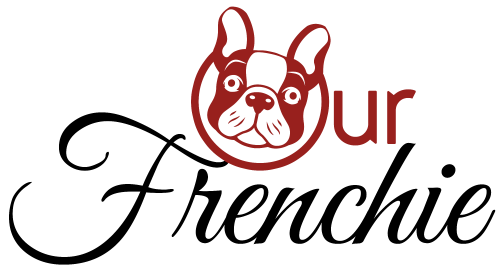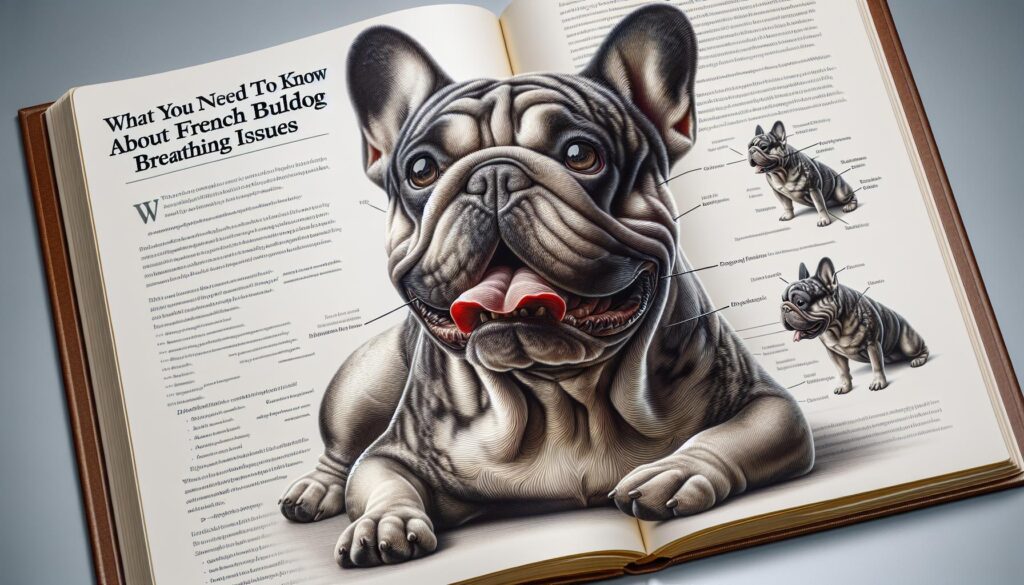About
French Bulldog Breathing Issues: What You Need to Know
Page Contents
French Bulldogs, wiht their adorable faces and playful personalities, have become one of the most beloved dog breeds worldwide. However, beneath their charming exterior lies a common health concern: breathing issues. These problems stem from their brachycephalic anatomy, characterized by a short skull and flat face, which can lead to various respiratory challenges. Understanding these issues is crucial for current and prospective French Bulldog owners to ensure their furry friends lead happy and healthy lives. This article delves into the causes, symptoms, and management of breathing problems in French bulldogs, providing essential insights for responsible pet care.
Understanding French Bulldog Anatomy
To comprehend why French Bulldogs frequently enough face breathing challenges, it’s essential to delve into their unique anatomical structure.French Bulldogs are brachycephalic, which means they have a skull shape that is shorter and more compact than other breeds. This distinctive feature gives them their adorable, squished faces but also contributes significantly to their respiratory issues. The shortened skull results in a compressed airway, which can lead to difficulties in breathing, especially during physical exertion or in hot weather.
Their anatomy includes several specific traits that can exacerbate breathing problems:
- Narrow nostrils (Stenotic Nares): many French Bulldogs are born with nostrils that are too narrow, restricting airflow.
- Elongated Soft Palate: The soft palate might potentially be too long for the mouth, partially obstructing the airway.
- Hypoplastic Trachea: A smaller-than-normal windpipe can further limit airflow.
These physical characteristics, while charming, mean that French Bulldogs require attentive care to ensure they remain healthy and comfortable. Understanding these anatomical nuances is crucial for owners to recognize signs of distress and to seek appropriate veterinary care when necessary.
Common Breathing Problems Explained
French Bulldogs, with their adorable squished faces, are prone to a variety of breathing problems due to their brachycephalic nature. This means they have a short skull, which can lead to several respiratory challenges. Understanding these issues is crucial for ensuring the well-being of your furry friend.
One of the most common issues is **Brachycephalic Obstructive Airway syndrome (BOAS)**. This condition results from the anatomical structure of French Bulldogs, including narrowed nostrils and elongated soft palates, which can obstruct airflow.Symptoms can range from noisy breathing and snoring to more severe signs like difficulty breathing and exercise intolerance.
Other prevalent conditions include:
- Stenotic Nares: Narrowed nostrils that make it tough for the dog to breathe through their nose.
- Elongated Soft Palate: Excess tissue in the back of the mouth that can block the airway.
- Tracheal Stenosis: A condition where the trachea is abnormally narrow, further complicating breathing.
Recognizing these issues early and consulting with a veterinarian can help manage symptoms and improve your French Bulldog’s quality of life. Regular check-ups and being attentive to any changes in their breathing patterns are essential steps in maintaining their health.
Signs Your French Bulldog May Struggle
French Bulldogs are known for their charming personalities and distinctive appearance, but their unique anatomy can often lead to breathing difficulties. Recognizing the signs early can help you address any issues promptly and ensure your furry friend’s comfort and health. Here are some indicators that your French Bulldog might potentially be struggling to breathe properly:
- Snoring and Wheezing: While it’s common for French Bulldogs to snore,excessive snoring or wheezing sounds,especially during sleep,can indicate a problem. Keep an ear out for any changes in the sound or frequency of their breathing.
- Labored Breathing: If you notice your dog is breathing with effort, such as using their abdominal muscles more than usual or having a fast, shallow breath even at rest, it may be a sign of distress.
- Exercise Intolerance: French bulldogs that tyre easily or struggle to keep up during playtime may be experiencing breathing issues. This can be particularly evident in hot or humid weather.
- Gagging or Coughing: Frequent gagging or coughing, especially after eating or drinking, can be a symptom of airway obstruction or irritation.
- Cyanosis: A bluish tinge to the gums or tongue is a serious sign of oxygen deprivation and requires immediate veterinary attention.
If you observe any of these signs, it’s crucial to consult with your veterinarian to determine the underlying cause and explore potential treatments. early intervention can significantly improve your French Bulldog’s quality of life and prevent more severe health issues. Remember, while their snub noses are part of their charm, they also require extra care and attention.
Veterinary Solutions and Treatments
Addressing breathing issues in French Bulldogs often requires a complete approach tailored to the individual dog’s needs.**Veterinary professionals** may begin with a thorough examination to assess the severity of the condition.This includes checking for signs of Brachycephalic Obstructive Airway Syndrome (BOAS), a common issue in breeds with short snouts. Based on the findings, various treatment options may be recommended.
**Surgical interventions** are sometimes necessary for severe cases. These procedures can include:
- Stenotic Nares Surgery: This involves widening the nostrils to improve airflow.
- Soft Palate resection: Trimming an elongated soft palate can definitely help prevent airway obstruction.
- Laryngeal Saccules Removal: If these structures are inflamed and block airflow, their removal can provide relief.
For less severe cases or as a complementary measure, **non-surgical treatments** may be advised. These can include weight management to reduce respiratory strain,medications to manage inflammation or allergies,and environmental adjustments such as keeping the dog cool and avoiding stressors. Regular check-ups are crucial to monitor the condition and adjust treatments as needed, ensuring your French Bulldog maintains the best possible quality of life.
Lifestyle Adjustments for easier Breathing
to help your French Bulldog breathe more easily, consider making some thoughtful lifestyle adjustments. **Weight management** is crucial; ensure your dog maintains a healthy weight through a balanced diet and regular exercise. Overweight dogs tend to have more severe breathing problems, so consult your vet for dietary recommendations tailored to your pet’s needs.
**Environmental modifications** can also make a significant difference.Keep your home cool and well-ventilated, especially during hot weather, as French Bulldogs are prone to overheating. use air purifiers to reduce allergens and irritants that could exacerbate breathing issues. Additionally, consider using a harness instead of a collar to avoid putting pressure on their neck and throat.
- Provide a **calm atmosphere** to minimize stress, which can worsen breathing difficulties.
- Incorporate **gentle exercise** routines like short walks or play sessions to improve overall fitness without overexertion.
- Ensure your dog has a **comfortable sleeping area** with a slightly elevated bed to aid in easier breathing during rest.
By implementing these lifestyle changes, you can significantly enhance your French Bulldog’s quality of life and help them breathe more comfortably.
Choosing the Right Diet for Respiratory Health
When it comes to supporting the respiratory health of your French Bulldog, selecting the right diet is crucial. A balanced diet not only aids in maintaining optimal weight, which is essential for reducing respiratory strain, but also ensures your dog receives the necessary nutrients to support overall health. **High-quality proteins** are essential as they help maintain muscle mass without contributing to unnecessary weight gain.Opt for lean meats like chicken, turkey, or fish. Additionally, include **omega-3 fatty acids** found in fish oil, as they have anti-inflammatory properties that can help soothe respiratory pathways.
Incorporating **fresh fruits and vegetables** into your French Bulldog’s diet can also be beneficial. These foods are rich in antioxidants, which support the immune system and can help reduce inflammation.Blueberries, spinach, and carrots are excellent choices. Avoid foods that are high in sodium and artificial additives, as these can contribute to water retention and exacerbate breathing difficulties.
- Choose foods with limited ingredients to minimize potential allergens.
- Ensure your dog has access to fresh water at all times to keep their airways moist and clear.
- Consult with a veterinarian or a canine nutritionist to tailor a diet plan specific to your dog’s needs.
Preventive Measures for Breathing Issues
Ensuring your French Bulldog maintains optimal respiratory health involves a combination of lifestyle adjustments and proactive care. **Regular exercise** is crucial, but it’s vital to tailor activities to their capabilities. short, controlled walks during cooler parts of the day can help maintain their weight, as obesity can exacerbate breathing issues. Avoid strenuous activities and always keep an eye out for signs of fatigue or distress.
**Dietary management** plays a significant role in preventing respiratory problems. Providing a balanced diet that maintains a healthy weight is essential. Consider consulting with a veterinarian to determine the best diet plan for your French Bulldog, focusing on high-quality ingredients and the right portion sizes.
- **Regular veterinary check-ups**: Early detection of potential problems can prevent more serious issues.
- **Avoiding smoke and allergens**: Keeping your home free from cigarette smoke and minimizing exposure to dust and pollen can greatly reduce respiratory stress.
- **proper hydration**: Ensure your dog always has access to fresh water, as dehydration can worsen breathing difficulties.
consider **environmental modifications** to enhance their comfort. Cooling mats or air conditioning can help regulate their body temperature during warmer months, reducing the risk of overheating. By implementing these preventive measures, you can significantly improve your French Bulldog’s quality of life and minimize the chances of breathing issues.
When to Consult a Specialist Vet
Recognizing when to seek the expertise of a specialist veterinarian is crucial for the well-being of your French Bulldog. **Consult a specialist** if you notice persistent or worsening breathing difficulties, as these can be indicative of more serious underlying conditions. Signs that warrant immediate attention include:
- Frequent or severe snoring that disrupts their sleep or yours
- Excessive panting, especially when at rest or in cool environments
- Gagging, coughing, or choking sounds during eating or drinking
- Blue-tinged gums or tongue, indicating oxygen deprivation
- Collapse or fainting episodes
Specialist veterinarians can offer advanced diagnostic tools such as **endoscopy or imaging techniques** to assess the severity of the breathing issues. They can also provide tailored treatment plans, which may include surgical interventions or specialized therapies, to alleviate symptoms and improve quality of life. Remember, early intervention can prevent complications and ensure your furry friend remains happy and healthy.
In Conclusion
understanding the breathing issues faced by French Bulldogs is crucial for their well-being. By recognizing the signs early and seeking veterinary care, you can definitely help ensure your furry friend leads a happy, comfortable life. Remember to choose a responsible breeder, maintain a healthy weight for your dog, and consider lifestyle adjustments to minimize respiratory stress. With informed care and attention, your French Bulldog can enjoy many joyful years by your side. Stay proactive and attentive, and you’ll be well-equipped to support your pet’s health and happiness.

